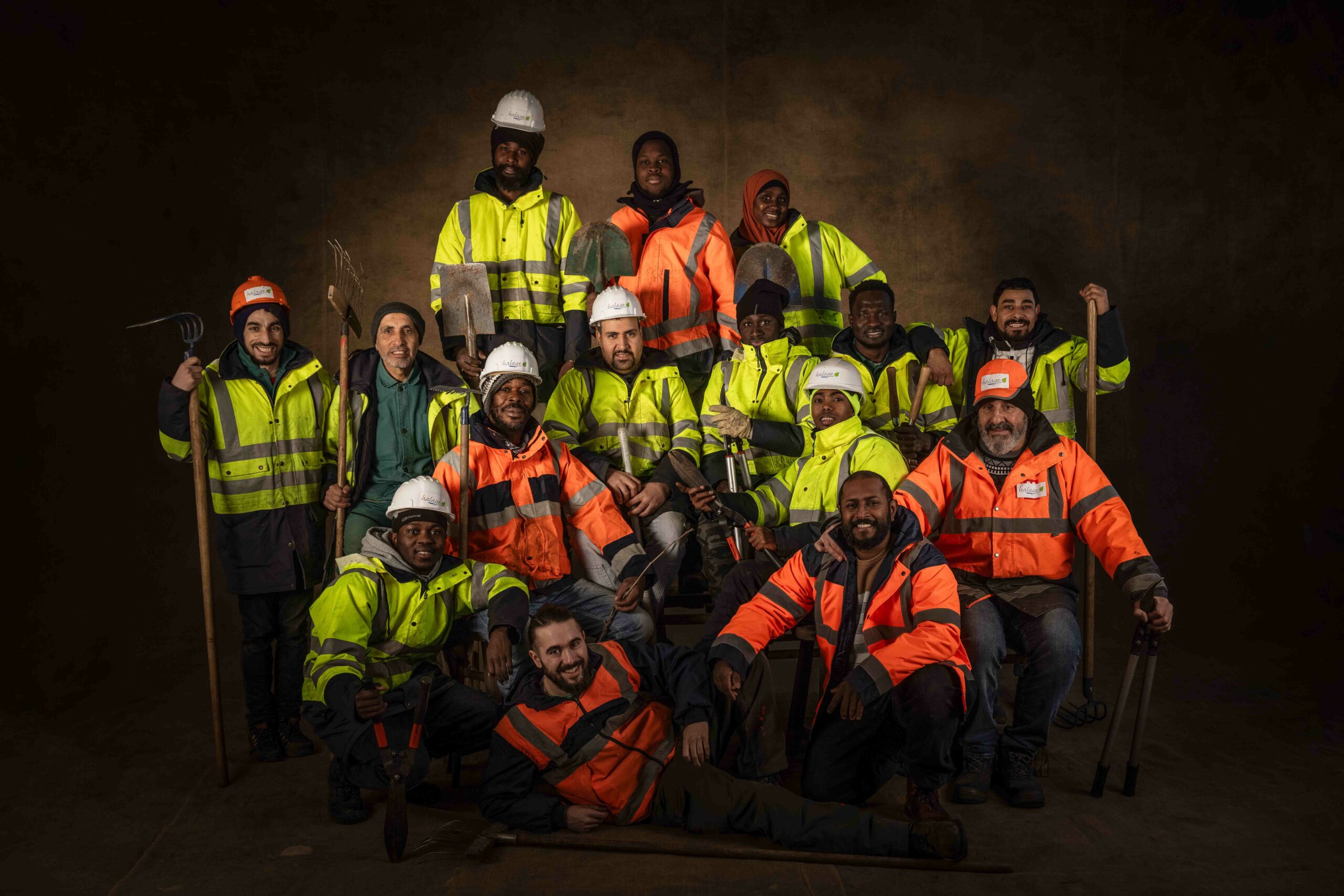Réparer l’homme en réparant la nature
Avec Jérin Prabakaran de Halage
L’ancienne friche industrielle de l’Ile-Saint-Denis, rebaptisée Lil’Ô, est devenue un jardin extraordinaire où poussent tournesols, dahlias, amarantes, pivoines. Spécialiste de l’insertion professionnelle via les métiers du paysage, l’association Halage a réussi un pari fou : créer sur une ancienne déchetterie aux sols pollués un espace de biodiversité exemplaire. Un savoir-faire qu’elle réplique sur différents projets franciliens. « Depuis 2023, l’équipe de jardiniers d’Halage taille, fauche, sème pour végétaliser certains des sites phares des Jeux olympiques et paralympiques » explique Jérin Prabakaran, responsable du Pôle espaces verts et naturels d’Halage.

Créé en 1994 à l’initiative d’un collectif d’éducation populaire, l’association est en effet responsable de l’aménagement paysager et de l’entretien des espaces verts du Village des athlètes et de l’échangeur Pleyel. Avec des fleurs et des végétaux produits localement en Seine-Saint-Denis et plantés dans une terre re-fertilisée issue des chantiers. L’objectif : intégrer l’économie circulaire aux métiers du paysage, relocaliser la production horticole française et imaginer d’autres façons de « faire la ville » en redonnant une place de choix à la nature. Des métiers d’avenir pour les femmes et les hommes éloigné·es du marché du travail qui y sont embauché·es en insertion. Laboratoire in situ d’innovation écologique, le projet Lil’Ô est un pôle d’activité sociale. « Plus de 2000 personnes sont passées par Halage : 160 salarié·es en parcours d’insertion par an avec 60% de sorties dynamiques, c’est-à-dire finalisées par un CDI, CDD ou une formation », se réjouit Jérin Prabakaran.
Informaticien, barman, brocanteur, Jérin Prabakaran a fait moult métiers avant d’opter pour une reconversion « verte » via une école d’horticulture : « Savoir que son travail a un impact social, ça donne de l’énergie ! Être présents aux Jeux Olympiques et Jeux Paralympiques, c’est montrer qu’on sait faire aussi bien mais autrement : qu’on peut réparer la nature en réparant l’humain. »
Healing men through healing nature
L’Ile-Saint-Denis’ former industrial wasteland, now known as Lil’Ô, has become an extraordinary garden where sunflowers, dahlias, amaranths, and peonies grow. To become the expert of gardening work insertion programs, Halage had to beat the odds: they turned an old wasteland with polluted soil into a remarkable area for biodiversity. This expertise has since been used on various projects around Paris. “Since 2023, the Halage gardening team has been trimming, mowing, and planting seeds to add greenery to various Olympic and Paralympic sites” explains Jérin Prabakaran, manager of the Green Spaces Department at Halage.
Indeed, Halage, which was created in 1994 by public and popular education believers, is now responsible for landscaping and maintenance of the green spaces of the Athletes’ Village and the Pleyel interchange. This will be done using locally-grown flowers and plants, from Seine Saint-Denis, and using re-fertilizes soil from the Olympics’ construction sites. The goal: to foster circular economy in the field of landscaping, to relocate flower production in France, and to re-imagine how we build cities, by giving more space to nature. Additionally, Halage provides its workers (usually men and women with low qualifications, and far removed from the job market) in their job insertion programs with useful skills for tomorrow’ job market. The Lil’Ô project is an ecological innovation lab, focusing on social integration. “Over 2000 people have been a part of Halage: every year, 160 people join our work integration programs, and over 60% of them leave Halage with encouraging prospects for the future (short-term or long-term employment, or further education).” appreciates Jérin Prabakaran.
Computer scientist, barman, antique shop retailer, Jérin Prabakaran lived multiple lives before his “green” retraining at a horticulture school. “Knowing that my work has a social impact gives me a lot of energy! Our involvement with the Olympic and Paralympic Games shows that we can do just as well as traditional actors in the field of landscaping, but we’re doing it differently: we’re healing nature through healing men.”
